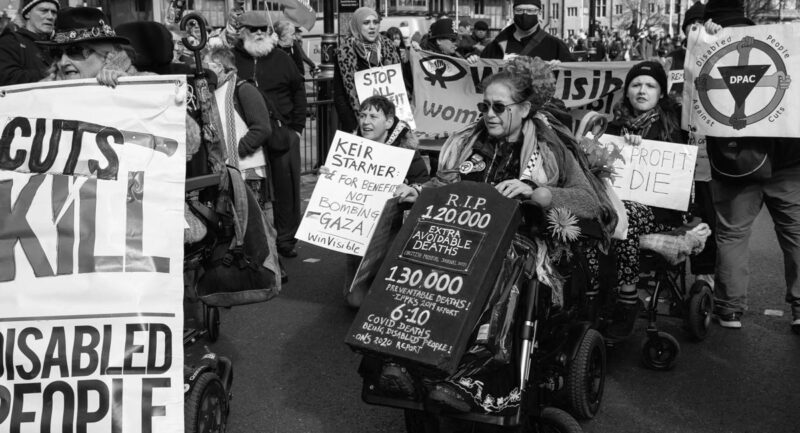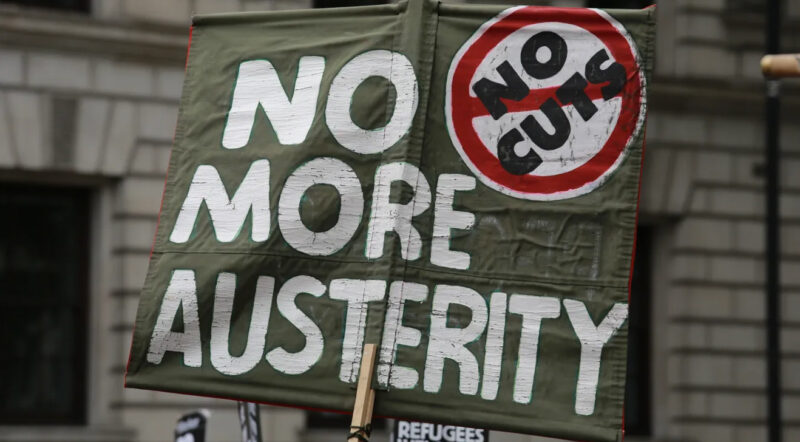Support grows for Europe-wide general strike
 By Peter Main
By Peter Main
As we go to press, workers across southern Europe are gearing up for a coordinated, cross-border general strike. On 14 November there will be one-day general strikes in Portugal, Spain, Greece, Italy, France, Malta and Cyprus. And the list is not closed. Unions, youth organisations and social movements are mobilising in Belgium and in other countries in Western and Eastern Europe.
Even the conservative bureaucracy of the European Trade Union Confederation (ETUC) which has hitherto shamefully supported the debt repayment programmes of the European Union, is calling for solidarity, encouraging “strikes, demonstrations, rallies and other actions”.
Not quite a pan-European general strike – but something which points in that direction.
The initiative for 14 November came last month from Portugal’s largest trade union, CGTP, which called a general strike on that date against “exploitation and impoverishment”.
Then Spain’s unions – Confederation Sundial de Comisiones Obreras, the Unión General de Trabajadores and the smaller federations, announced they would join in and “celebrate the first Iberian general strike”.
This comes against a backdrop of a wave of protests against the 2013 State Budget, expected to include €39 billion in additional spending cuts and tax increases.
In Italy, according to organisers, 100,000 demonstrated in Rome on 27 October against Mario Monti’s austerity government. In a separate demonstration, 20,000 doctors and nurses protested against the attacks on the health service. The CGIL, and smaller rank and file unions like COBAS, are taking their place in the day of international action.
In France, the CFDT, CGT, FSU and the Union Syndicale Solidaires have committed their troops – with the CGT calling on its unions to strike against austerity.
The day of action is the crest of a rising wave of indignation against a battery of cuts – austerity with no end in sight – which has hit almost every European country. The tide of protest has naturally run strongest in those countries suffering the heaviest attacks – in Greece, Spain and Portugal. But there are clear signs that resistance is now mounting in Italy, France and even in non-Eurozone Britain.
On 15September, Portugal saw its biggest demonstration since the Revolution of 1974.
In Spain, on 26 and 27September, hundreds of thousands demonstrated and huge numbers besieged the Spanish parliament as it was passing Prime Minister Mariano Rajoy’s latest cuts budget.
In Greece, on 19 October, another general strike, the second in three weeks, took place against the Troika-backed right wing government of Antonis Samaras. That was then followed by the massive 48-hour general strike of 8 and 9 November, as the Greek parliament voted on the government’s next round of cuts.
In Britain, on 20 October, 150,000 marched and heard Len McCluskey, leader of Unite, the second biggest union in the country, call for a general strike and appeal for the crowd to vote for it – which they did in their thousands. An international conference called by the Coalition of Resistance, with participants from Greece, Spain, Portugal, Ireland and elsewhere, was held in London the following day. The meeting resolved:
“We will work together in the months ahead, cooperating for the ETUC Day of Action on 14 November, moving towards the Alter Summit in 2013, and increasing our work for left and movement unity, for common action, mutual solidarity, communication and coordination.”
International Solidarity
So far, Europe’s rulers have played the game of divide and rule on its workers. Our union general secretaries and our so-called socialist party leaders, have fallen into line, lecturing workers that some cuts must be made, leaving each sector to struggle over which will suffer the least.
Internationally, they have not combated the filthy chauvinist propaganda of governments, media and the EU authorities that the workers of the heavily indebted countries are “lazy” and “spendthrift”. Class solidarity and internationalism have remained empty phrases.
It’s time to put a stop to this ruinous game and act ALL TOGETHER; as the French say, Tous ensemble, tous ensemble! Oui! Oui! Oui!
In every country, this means that both private and public sector workers must be drawn into the struggle. Where the bosses’ press and TV stations argue that low wages and insecure employment in the private sector are economically necessary to justify privatisation, downsizing and offshoring, we have to insist on an end to superexploitation.
We need secure, well paid jobs with pensions for all at full union rates, jobs for the millions of unemployed, citizenship rights for the migrant workers, cuts in taxation for the workers and the poor and higher taxes on the super-rich to pay for health, education, transport, social security – services that everybody needs.
We need to recognise that isolated struggles, sector-by-sector, country-by-country. Neither will one-day general strikes. No matter how big and impressive they are, they remain only protests – and protests will not soften the hard hearts of the billionaires and their bought and sold politicians.
In Spain and Greece, demonstrators have recognised the hollowness of normal parliamentary “democracy”, where the media are all in the bosses’ hands and the police have the power to break up protests and protect the legislators against the people.
What protests can do is mobilise people, demonstrating where the millions stand. But then decisive action needs to be taken; the millions must become a force.
We need all out, unlimited general strikes to drive out the austerity governments, to scatter and dissolve the riot cops and repressive forces, to install governments based on the mass movement of the working people, the unemployed and the poor.
So far, the major unions have done little or nothing. Indeed, Berthold Huber of the massive German engineering union, IG Metall has even condemned Spanish and Portuguese unions for striking. However, anti-cuts committees and Greek solidarity committees will demonstrate in Berlin, Hamburg, Cologne, and other German cities, with the support of local union branches.
After 14 November, union branches and trades councils should sponsor local, delegate-based committees to co-ordinate the campaign for a general strike in every town and every union. By drawing in other unions and campaigns, this would not only maximise their impact locally, but take forward the fight within the unions for national action. We need to start campaigning now so that, when the next European action is called, there will be a general strike in Britain, too.









